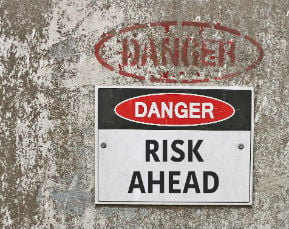 Online piracy is a complex and constantly evolving phenomenon that fuels the daily reporting on this website.
Online piracy is a complex and constantly evolving phenomenon that fuels the daily reporting on this website.
While big headlines don’t appear every day, there’s always something happening. These events are no longer the preserve of niche audiences as mainstream media outlets show increasing interest.
This broader coverage is in part fueled by a steady stream of press releases issued by rightsholders and anti-piracy groups. These alerts often find their way to online news publications where they are republished with no questions asked. It’s a particularly useful mechanism for those crafting the messaging.
The Media as an Anti-Piracy Tool
The role of the press as a communication ‘tool’ isn’t typically discussed in public but did come up in a recent letter sent to the US Trademark and Patent Office by the Premier League. It mentions the media as one of the key tools through which messages can be sent.
The Premier League lists media reporting as one of the main ways the public at large is informed about the harms and dangers of piracy. This apparently can be very effective, as an example from Singapore shows.
“Raids conducted at the end of last year in Singapore are a good example of law enforcement using media coverage to send a strong message to the market about the legal risks associated with piracy.
“Since the raids, and resultant widespread media coverage, the Premier League has not been able to find any physical shops selling illicit streaming devices offering its content in Singapore,” the Premier League notes.

In addition to covering enforcement actions, the media also helps by ‘amplifying’ research and reports, including those that highlight malware threats and piracy-related scams.
“Publications of studies and reports, such as those identified in the previous response, that contain empirical data on the harms and dangers of piracy. These are generally amplified by media reporting and consumer campaigns,” the Premier League adds.
Balance vs. Hysteria
The Premier League’s letter shows that rightsholders can utilize the media to boost their anti-piracy message. There is absolutely nothing wrong with that strategy, as long as the media maintains a critical and balanced view. But it doesn’t always work that way.
With limited time available, many news publications rely heavily on information being fed to them. And since press releases typically lack caveats and counterpoints, subsequent reports risk being one-sided; in some cases, dramatically so.
In recent years we have seen media outfits not only repeat messaging but deliberately make it more extreme. This can lead to hysterical coverage or outright misinformation.
Nuance
Again, the Premier League and other rightsholders are not really to blame for this. Their press releases are carefully crafted to ensure effective delivery of their main messages and the absence of nuance is intended. The role of the media is to find balance and avoid hyperbole, but the former is often lacking.
A critical look at industry reports can pay off though. For example, when a report suggested that pirate sites are the main propagation method for malware, experts were quick to reject the claim. And when researchers fail to present proper evidence, that’s worth pointing out too.
All in all, it’s the responsibility of the media to ensure the presentation of a complete picture. The facts that are not mentioned in a press release are often far more interesting than those that are.
There are plenty of signs that rightsholder groups are deliberately creating strategies to ‘cultivate‘ their relationships with the press. And, needless to say, it’s not their goal to make sure that the media remains dedicated to balanced reporting; they simply want to deter piracy.
—
A copy of the Premier League’s full letter to the U.S. Parent and Trademark Office is available here (pdf)





